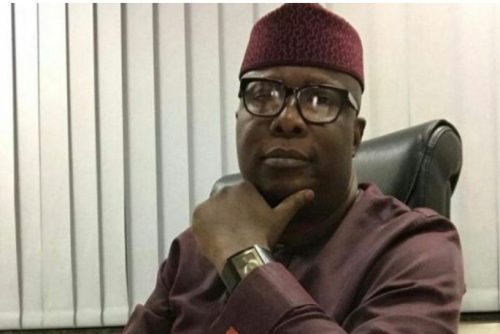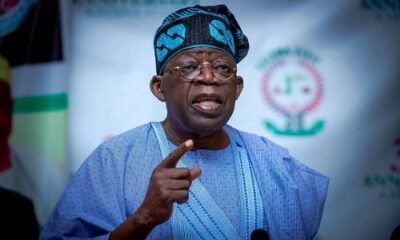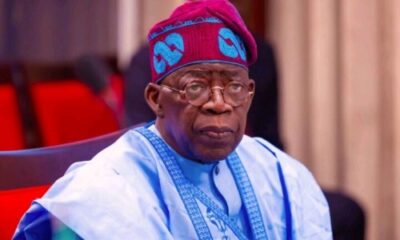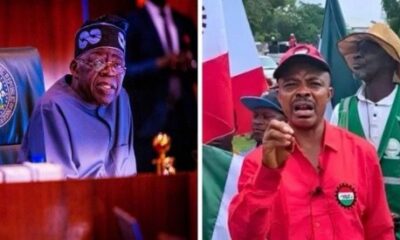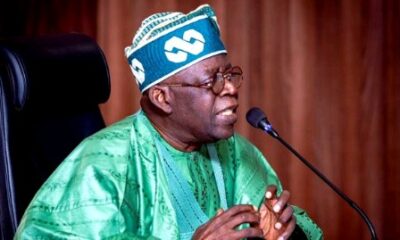The Nigeria Police Force has detained a female police officer who was the aide-de-camp to embattled former Kogi State Governor, Yahaya Bello, Saturday PUNCH is reporting.
The ADC was arrested alongside other police officers attached to 48-year-old Bello and is being detained at the State Criminal Investigation Department, Federal Capital Territory, Abuja.
Their arrests and detention followed a Thursday night order by the Inspector General of Police, Olukayode Egbetokun, directing their immediate withdrawal from the former governor.
Senior police sources, who spoke to our correspondent on the condition of anonymity because they did not have authorization to comment publicly on the matter, noted that the officers were arrested on the suspicion that they aided and abetted Bello’s escape from operatives of the Economic and Financial Crimes Commission, who had gone to effect his arrest at his Abuja home on Wednesday.
“The ADC and the other police details attached to Yahaya Bello have been arrested and detained.
“They were arrested on the order of the IG, on the suspicion that they aided and abetted the former governor’s escape from the EFCC on Wednesday,” one of the sources told our correspondent in a telephone conversation on Friday.
Another source said, “Yahaya Bello’s female ADC and other police officers attached to him were brought to the command this morning, and they’ve been detained for aiding and abetting (the governor’s escape).”
Egbetokun had, on Thursday night, ordered the withdrawal of all police officers attached to Bello.
The order for the withdrawal was contained in a police wireless message sighted by our correspondent on Friday morning.
The document read, “CB:4001/DOPS/PMF/FHQ/ABJ/VOL.48/ 34 X ORDER AND DIRECTIVES X FOLLOWING MESSAGE RECEIVED FROM NIGPOL.
“DOPS ABUJA X BEGINS X CB:4001/DOPS/FHQ/ABJ/VOL.21/462 DTO:180955/04/2024 X ORDER AND DIRECTIVES X REF MYLET NO CB:3412/DOPS/FHQ/ABJ/VOL.1/36 DATED 15/04/2024 X AND MY EARLIER LET NO CB:3412/DOPS/FHQ/ABJ/VOL.1/30 DATED 24/01/2024 X Nigeria police have ordered the withdrawal of all men.
“Police attached to His Excellency and former Executive Governor of Kogi State, Alhaji Yahaya Bello, should acknowledge compliance and treat with utmost importance. Please above for your information and strict compliance.”
Also, the Federal Government had on Thursday night placed Bello on a watch list.
In a document exclusively obtained by our correspondent on Thursday night, the Comptroller General of the Nigeria Immigration Service, revealed that Bello was placed on a watchlist for conspiracy, breach of trust, and money laundering.
The Assistant Comptroller General signed the document and copied the Nigeria Customs Service, the Inspector General of Police, the Director General of the Department of State Services, and the Director of the National Internet Agency.
The document read, “I am directed to inform you that the above-named person has been placed on a watch list. Suffice to mention that the subject is being prosecuted before the Federal High Court Abuja for Conspiracy, Breach of Trust and Money Laundering vide letter Ref; CR; 3000/EFCC/LS/EGCS.1/TE/V 1/279 dated April 18, 2024.
“If seen at any entry or exit point, he should be arrested and referred to the Director of Investigation, or contact 08036226329/07039617304 for further action.
“Please, accept as always the Comptroller-General’s warmest regards and esteem.”
The Economic and Financial Crimes Commission had earlier declared Bello wanted for laundering the sum of N80,246,470,088.88.
The development was contained in a notice posted on the commission’s official Facebook page on Thursday, with a snapshot of the embattled ex-governor attached.
The notice read, “The public is hereby notified that Yahaya Adoza Bello (former Governor of Kogi State), whose photograph appears above is wanted by the Economic and Financial Crimes Commission in connection with an alleged case of Money Laundering to the tune of N80,246,470,089.88 (Eighty Billion, Two Hundred and Forty Six Million, Four Hundred and Seventy Thousand and Eighty Nine Naira, Eighty Eight Kobo).
“Bello, a 48-year-old Ebira man, is a native of Okenne Local Government of Kogi State. His last known address is: 9, Benghazi Street, Wuse Zone 4, Abuja. Anybody with useful information as to his whereabouts should please contact the Commission.”
Bello had, on Thursday, failed to appear before Justice Emeka Nwite of the Federal High Court sitting in Abuja following his arraignment by the EFCC.
The embattled former governor was arraigned in absentia before Justice Emeka Nwite alongside three other suspects, Ali Bello, Dauda Suleiman and Abdulsalam Hudu on 19-count charges bordering on money laundering.
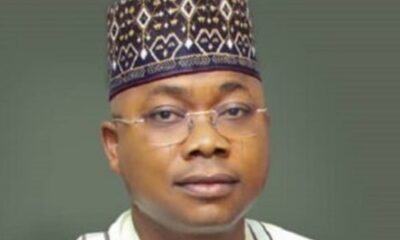
 BIG STORY19 hours ago
BIG STORY19 hours ago
 BIG STORY3 days ago
BIG STORY3 days ago
 BIG STORY3 days ago
BIG STORY3 days ago
 BIG STORY4 days ago
BIG STORY4 days ago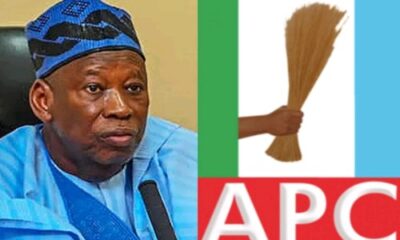
 BIG STORY3 days ago
BIG STORY3 days ago
 BIG STORY4 days ago
BIG STORY4 days ago
 BIG STORY2 days ago
BIG STORY2 days ago
 BIG STORY5 days ago
BIG STORY5 days ago



